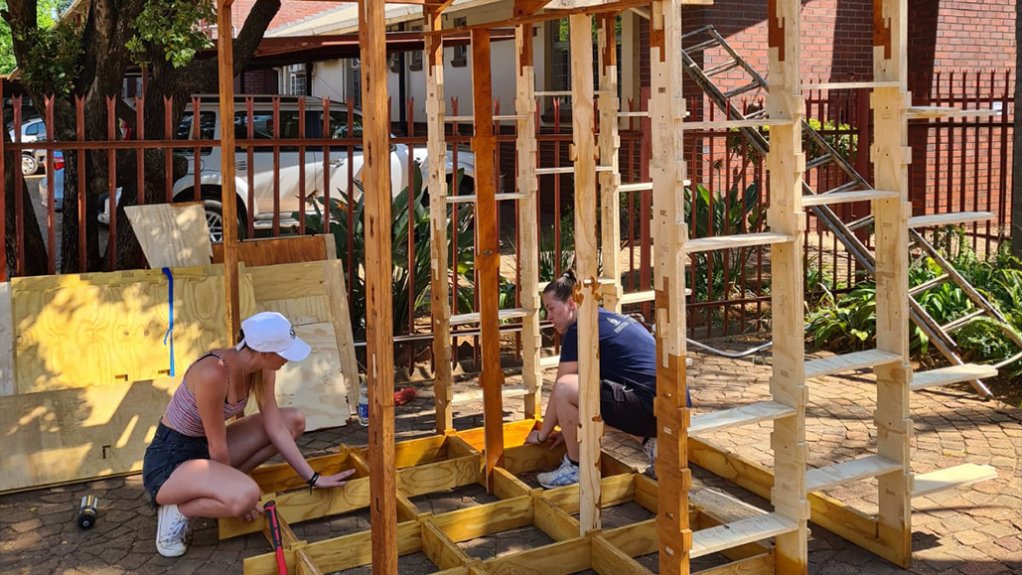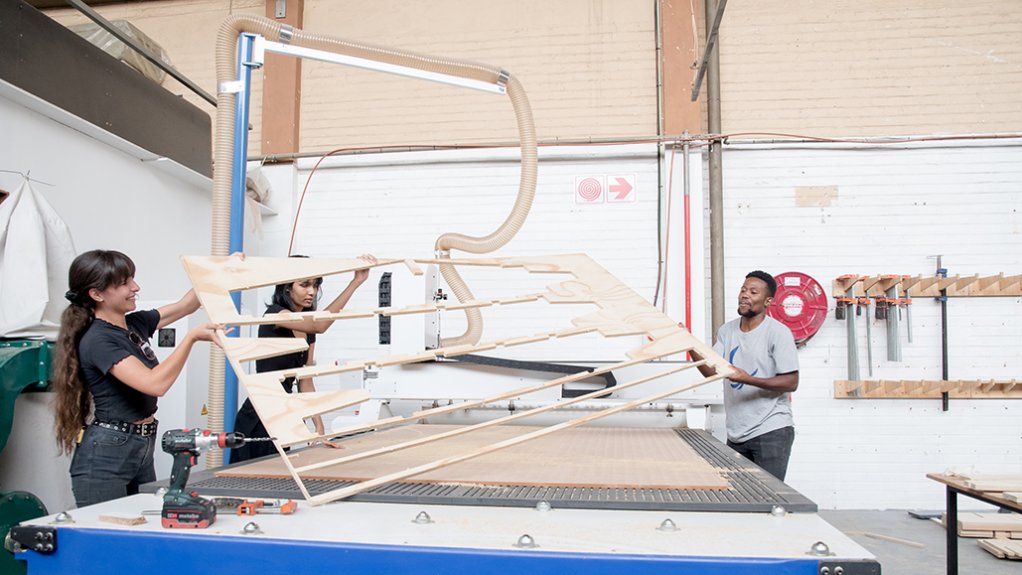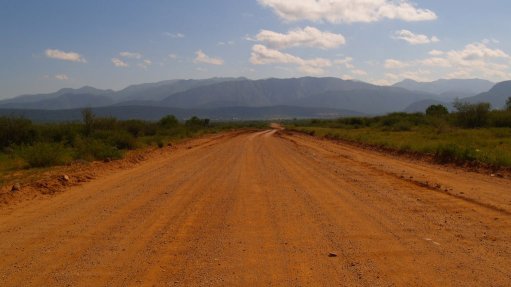Modular systems could transform sustainable housing – UP lecturer



Modular Design The WikiHouse designs make use of a modular design, making it easy to learn and assemble
Photo by The University of Pretoria
Easy to Manufacture Manufactured to less than a millimetre accuracy, room for error is lowered, with a cleaner process using a CNC machine to cut out the required pieces
Photo by The University of Pretoria
Standardised modular building systems, supplemented by educational mobile applications, could transform aspects of the local construction sector, says University of Pretoria (UP) senior lecturer and York Timbers multidisciplinary chairperson Schalk Grobbelaar.
He suggests that the Wood App – a platform created by Stellenbosch University’s Wood Sciences Department, in collaboration with the York Timbers and UP’s Wood Structural Engineering Department – coupled with the platform WikiHouse, could add an “exciting and new dimension” to sustainable infrastructure development.
“The Wood App is an educational platform that aims to educate people on the design and use of wood products, providing online courses that are accessible to anyone. The idea is to progressively build the app and share knowledge, with the intention of keeping the app free.”
He adds that the platform WikiHouse, similarly to the Wood App, seeks to educate through guides, but is also a modular building system that makes it easy to design, manufacture and assemble homes and small buildings.
These systems could be used for local construction by potentially creating standardised and approved designs for dwellings, and enabling oversight and training by the National Home Builders Registration Council. Members of the council could inspect these constructions based on the standardised plan.
The WikiHouse process is simplified, and a localised version could allow for the implementation and construction of houses to be rolled out much faster.
All that is needed for this process is a computer numerically controlled machine and the tools to produce building materials, based on an existing template, states Grobbelaar, adding that “although this idea has not been tested in South Africa, it could potentially provide a unique solution to the current housing block”.
In terms of developing sustainable, affordable housing, he says that there are potential benefits.
“The process of the WikiHouse design is cleaner and simplified, and quality control will be easier, while being applicable to South Africa, where government mandates community involvement and procurement.”
Grobbelaar points out that, once a person has helped to assemble a building in the WikiHouse mould, s/he can easily repeat the process and might be considered a competent builder, in contrast to a system such as bricklaying, where attaining a similar level of “competence” and being trusted to assemble a house or building would be a protracted process.
He notes that, with the multiple variables that could potentially go wrong with bricklaying and the greater technical proficiency that is required, it is riskier than the modular process, which is “effectively a matter of joining puzzle pieces”, but on a larger scale.
“The components are designed to fit in a specific manner. They are machined to less than a millimetre accuracy, so the room for error is much less, and it becomes a more controlled environment than the one used to build the reconstruction and development programme (RDP) buildings. There are multiple control issues that can become an issue with RDP houses, whereas with the WikiHouse design, control and management is far easier,” explains Grobbelaar.
Proof of Concept
The UP’s Wood Structural Engineering Department has tested one of the WikiHouse designs. Grobbelaar says that, as a result of this modular design, the build is quicker and easier to assemble.
He notes a few other potential benefits, however, when applying this concept in a South African context.
The designs are made to use wood as the construction material. The nature of these designs, while quick and easy to construct, also presents the potential for relocation.
Wood is a light and easy to work with material and, with the correct design, cost-effective insulation can be integrated into the structure, reducing energy use for heating.
In the event of natural disasters, given the ease and speed with which these designs can be implemented, temporary and/or permanent housing can also be provided at short notice for those affected, Grobbelaar concludes.
Article Enquiry
Email Article
Save Article
Feedback
To advertise email advertising@creamermedia.co.za or click here
Announcements
What's On
Subscribe to improve your user experience...
Option 1 (equivalent of R125 a month):
Receive a weekly copy of Creamer Media's Engineering News & Mining Weekly magazine
(print copy for those in South Africa and e-magazine for those outside of South Africa)
Receive daily email newsletters
Access to full search results
Access archive of magazine back copies
Access to Projects in Progress
Access to ONE Research Report of your choice in PDF format
Option 2 (equivalent of R375 a month):
All benefits from Option 1
PLUS
Access to Creamer Media's Research Channel Africa for ALL Research Reports, in PDF format, on various industrial and mining sectors
including Electricity; Water; Energy Transition; Hydrogen; Roads, Rail and Ports; Coal; Gold; Platinum; Battery Metals; etc.
Already a subscriber?
Forgotten your password?
Receive weekly copy of Creamer Media's Engineering News & Mining Weekly magazine (print copy for those in South Africa and e-magazine for those outside of South Africa)
➕
Recieve daily email newsletters
➕
Access to full search results
➕
Access archive of magazine back copies
➕
Access to Projects in Progress
➕
Access to ONE Research Report of your choice in PDF format
RESEARCH CHANNEL AFRICA
R4500 (equivalent of R375 a month)
SUBSCRIBEAll benefits from Option 1
➕
Access to Creamer Media's Research Channel Africa for ALL Research Reports on various industrial and mining sectors, in PDF format, including on:
Electricity
➕
Water
➕
Energy Transition
➕
Hydrogen
➕
Roads, Rail and Ports
➕
Coal
➕
Gold
➕
Platinum
➕
Battery Metals
➕
etc.
Receive all benefits from Option 1 or Option 2 delivered to numerous people at your company
➕
Multiple User names and Passwords for simultaneous log-ins
➕
Intranet integration access to all in your organisation



















